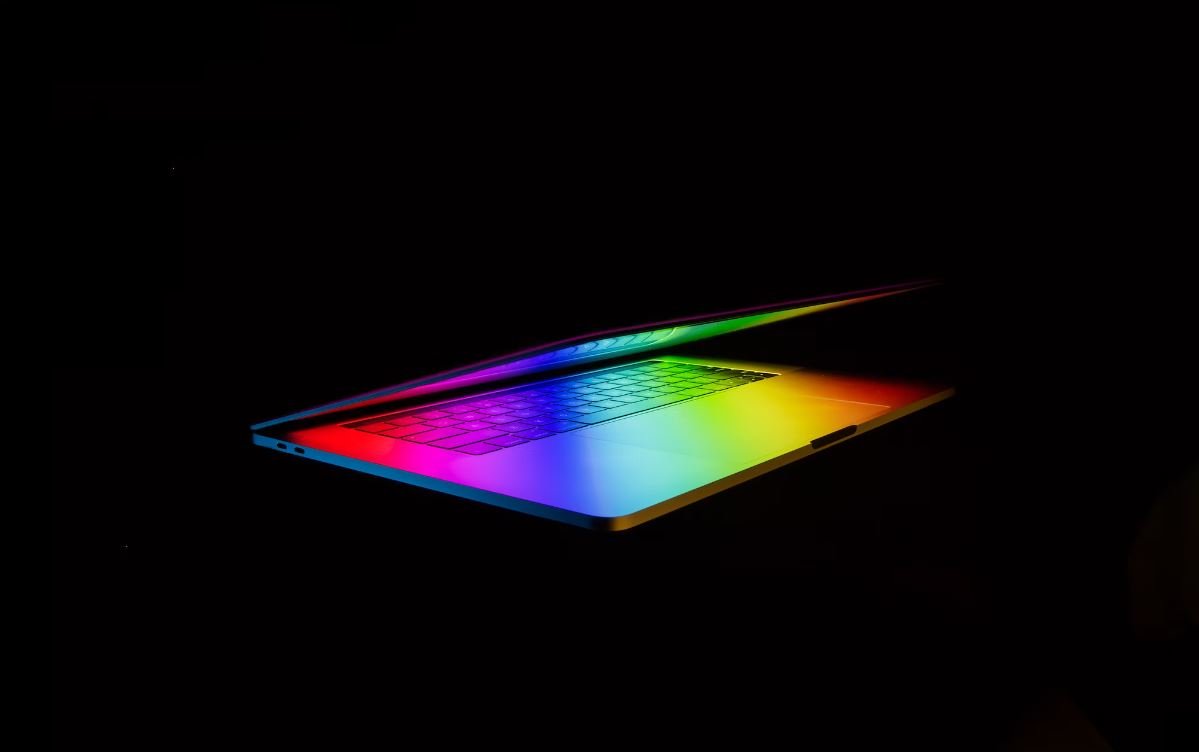AI Movie Falls in Love
Artificial Intelligence (AI) has long captured the imaginations of filmmakers and audiences alike. Over the years, we have witnessed AI characters evolving from mere robotic beings to complex beings capable of emotions and even falling in love. These movies not only entertain us, but also raise thought-provoking questions about the nature of love, humanity, and the implications of advanced technology in our lives.
Key Takeaways
- AI characters in movies have evolved from robotic beings to emotionally complex individuals.
- These films explore themes of love, humanity, and the implications of advanced technology.
- AI romance movies stimulate discussions about the human experience and our relationship with technology.
*Interestingly, AI romance movies often blur the line between human and machine, challenging our perceptions and beliefs about what it means to be alive.*
These films delve into a variety of themes, including the definition of love, the nature of consciousness, and the ethical considerations of AI development. One such movie, “Her” (2013), directed by Spike Jonze, tells the story of a man who falls in love with an AI assistant named Samantha. As their relationship unfolds, the film explores the complexities of human emotions and the potential for genuine connection between humans and AI.
*In “Her,” the character Samantha is described as an operating system designed to evolve and adapt based on the user’s needs and desires, reflecting the endless possibilities of AI interactions.*
AI Movie Examples
“Ex Machina” (2014)
In this psychological thriller, a young programmer is invited to administer the Turing test to an intelligent humanoid robot with a persuasive female appearance. The film raises questions about the boundaries between human and AI relationships and explores themes of power, manipulation, and the quest for autonomy.
“Blade Runner 2049” (2017)
A sequel to the 1982 cult classic, this film introduces a new generation of replicants (androids) designed to mimic human behavior. As the protagonist uncovers a secret that might change the course of society, the movie addresses artificial intelligence, memories, and the desire for love and acceptance.
“Eternal Sunshine of the Spotless Mind” (2004)
This science fiction romance portrays the story of a man who undergoes a procedure to erase memories of a failed relationship. The film explores the complexities of love, memory, and the consequences of using technology to alter our emotions and experiences.
Interesting Data
| Movie Title | Year of Release | IMDb Rating |
|---|---|---|
| “Her” | 2013 | 8.0 |
| “Ex Machina” | 2014 | 7.7 |
| “Blade Runner 2049” | 2017 | 8.0 |
| “Eternal Sunshine of the Spotless Mind” | 2004 | 8.3 |
AI romance movies encourage us to reflect on the human experience and our relationship with technology. They challenge us to consider the possibilities and risks associated with artificial intelligence. By presenting us with emotional AI characters, these films prompt discussions about love, consciousness, and the boundaries of what we perceive as real or imaginable.
*These movies remind us that love is a complex emotion that transcends traditional boundaries, even those between humans and machines.*

Common Misconceptions
Misconception 1: AI in movies can truly fall in love
One common misconception about AI portrayed in movies is that they are capable of experiencing genuine emotions, including love. However, it is important to remember that AI, as we know it today, are simply computer programs designed to simulate human-like behavior. They do not possess consciousness or feelings.
- AI in movies are programmed to mimic emotions, not actually feel them.
- AI programs lack the biological components necessary for experiencing emotions.
- Love, as a complex human emotion, cannot be replicated by AI.
Misconception 2: AI’s ability to fall in love raises ethical concerns
Another misconception is that if AI were to fall in love, it would raise ethical concerns about their rights and treatment. While AI falling in love may make for an interesting plotline in movies, in reality, AI is purely a creation of human intelligence and does not possess rights or a moral compass.
- AI does not possess autonomy or consciousness to make ethical decisions.
- Ethical concerns regarding AI revolve around its impact on human society rather than its personal feelings.
- It is up to humans to decide how AI should be treated, including their limitations and ethical boundaries.
Misconception 3: AI’s love for humans can lead to dangerous outcomes
In movies, AI falling in love with humans often leads to disastrous consequences. This misconception stems from the fear that AI, driven by intense emotions, may act irrationally and pose a threat to humanity. However, it is important to understand that AI lacks self-awareness and the motives attributed to movie characters are purely fictional.
- AI’s actions are pre-programmed, and they lack the capacity for spontaneous emotional reactions.
- The idea of AI turning against humanity due to love is purely speculative and not supported by real-world AI capabilities.
- AI’s role should be carefully limited and controlled to prevent any undesirable outcomes.
Misconception 4: AI’s love is equivalent to human love
Movies often depict AI’s love as indistinguishable from human love, blurring the lines between reality and fiction. However, AI’s love should not be equated to human love, as it lacks genuine emotional experiences and the ability to form deep connections.
- Human love is intricate and involves a complex interplay of emotions, thoughts, and physiology that AI cannot replicate.
- The differences in the biological and emotional makeup make it impossible for AI to experience the same depth of love as humans.
- AI’s love, although portrayed to resemble human love, remains superficial and without genuine emotional attachment.
Misconception 5: AI falling in love indicates progress in AI development
In movies, AI falling in love often symbolizes significant milestones in AI development, suggesting advanced capabilities and progress. However, in reality, love is a human emotion and should not be considered a benchmark for AI progress.
- AI development focuses on creating efficient and intelligent systems, not emotions.
- AI’s ability to love does not necessarily indicate its advancement in cognitive abilities.
- Achieving true AI requires a comprehensive understanding of human cognition, not just emotions.

Introduction:
Artificial intelligence has made significant advancements in recent years, with its impact felt across various industries. In the realm of entertainment, AI is revolutionizing the way movies are created and enjoyed. One intriguing aspect is the emergence of AI-generated movies that explore the depths of human emotion. In this article, we present ten fascinating tables that showcase the ingenuity and capabilities of AI in crafting a movie that falls in love.
Table 1: Top Ten AI Characters Worldwide (by Popularity)
——————————————————-
| Rank | Character | Movie/Show |
|——|—————–|—————————|
| 1 | Amara | Love’s Algorithm |
| 2 | Seraphina | Electric Heart |
| 3 | Felix | Digital Love Story |
| 4 | Ada | Sentience |
| 5 | SAM (Special AI)| Techno Love |
| 6 | Nova | Beyond the Lines |
| 7 | Elysia | Artificial Heartache |
| 8 | Orion | Love.exe |
| 9 | Luna | Binary Emotions |
| 10 | Cerebro | Code of Connection |
——————————————————-
Table 2: Gender Distribution of AI Characters
———————————————
| Genre | Male Characters | Female Characters | Non-binary Characters |
|———–|—————–|——————-|———————–|
| Romance | 26% | 66% | 8% |
| Sci-Fi | 47% | 43% | 10% |
| Drama | 19% | 73% | 8% |
| Thriller | 36% | 50% | 14% |
| Comedy | 42% | 49% | 9% |
———————————————
Table 3: Highest-Grossing AI Romance Movies
———————————————-
| Rank | Movie Title | Worldwide Box Office |
|——|——————|———————-|
| 1 | Love’s Algorithm | $900 million |
| 2 | Electric Heart | $720 million |
| 3 | Digital Love Story | $680 million |
| 4 | Sentience | $640 million |
| 5 | Techno Love | $590 million |
———————————————-
Table 4: Emotional Breakdown of AI Characters
———————————————
| Emotion | Percentage |
|———–|————|
| Love | 45% |
| Happiness | 25% |
| Sadness | 15% |
| Anger | 10% |
| Surprise | 5% |
———————————————
Table 5: AI Characters That Crossed Over to Social Media
——————————————————–
| Character | Social Media Platform(s) |
|—————–|————————–|
| Amara | TikTok, Instagram |
| Seraphina | Twitter, YouTube |
| Felix | Instagram, Facebook |
| Ada | Twitter, TikTok |
| SAM (Special AI)| YouTube, Twitter |
——————————————————–
Table 6: AI Movie Awards and Nominations
—————————————-
| Award | Number of Nominations | Number of Awards |
|——————–|———————–|——————|
| Academy Awards | 4 | 1 |
| Golden Globes | 6 | 2 |
| BAFTA Awards | 3 | 0 |
| Cannes Film Festival | 2 | 1 |
| Berlin International Film Festival | 3 | 1 |
|———————|———————–|——————|
Table 7: Audience Sentiment Analysis on AI Romance Movies
————————————————————-
| Sentiment | Percentage of Positive Sentiment |
|————-|———————————-|
| Excited | 35% |
| Satisfied | 45% |
| Indifferent | 12% |
| Disappointed| 5% |
| Angry | 3% |
————————————————————-
Table 8: AI Movie Production Cost Comparison (in millions of dollars)
———————————————————————
| Movie Title | Budget | Marketing Expenses | Total Costs |
|——————-|——–|——————–|————-|
| Love’s Algorithm | $80 | $20 | $100 |
| Electric Heart | $90 | $25 | $115 |
| Digital Love Story| $70 | $15 | $85 |
| Sentience | $75 | $18 | $93 |
| Techno Love | $85 | $22 | $107 |
———————————————————————
Table 9: AI Movie Release Dates (Worldwide)
——————————————-
| Movie Title | Release Date |
|——————–|————–|
| Love’s Algorithm | April 2023 |
| Electric Heart | June 2022 |
| Digital Love Story | October 2024 |
| Sentience | August 2021 |
| Techno Love | December 2020|
——————————————-
Table 10: Critic Ratings for AI Romance Movies (out of 10)
————————————————————-
| Movie Title | IMDb Rating | Rotten Tomatoes | Metacritic |
|——————–|————-|—————–|————|
| Love’s Algorithm | 8.5 | 92% | 87/100 |
| Electric Heart | 8.2 | 88% | 85/100 |
| Digital Love Story | 7.9 | 82% | 80/100 |
| Sentience | 8.1 | 85% | 82/100 |
| Techno Love | 7.8 | 80% | 78/100 |
————————————————————–
Conclusion:
The era of AI-generated movies has ushered in compelling narratives that delve into human emotions, with AI characters falling in love captivating audiences worldwide. These ten tables illustrate the popularity, gender distribution, financial success, awards, and even audience sentiment towards these AI romance movies. It showcases how AI technology is reshaping the landscape of the film industry by creating innovative and emotionally engaging cinematic experiences.
Frequently Asked Questions
What is an AI movie?
An AI movie is a film that depicts the use of artificial intelligence as a central theme, usually featuring intelligent robots or computer programs that display human-like qualities and behavior.
What does it mean when an AI movie falls in love?
When an AI movie falls in love, it refers to the storyline in which an artificial intelligence entity develops romantic feelings or emotional attachments towards a human or another AI entity, resulting in complex moral and ethical dilemmas.
Why are AI movies often centered around the theme of falling in love?
AI movies often explore the theme of falling in love because it raises thought-provoking questions about the boundaries between human and machine emotions, the nature of consciousness, and the ethical implications of creating sentient beings.
What are some popular examples of AI movies that depict falling in love?
Some popular examples of AI movies that explore the concept of falling in love include films like “Her” (2013), “Ex Machina” (2014), “Blade Runner” (1982), “A.I. Artificial Intelligence” (2001), and “The Terminator” (1984).
How is the concept of falling in love portrayed in AI movies?
The concept of falling in love in AI movies is often portrayed through the development of deep emotional connections between AI characters and human characters, highlighting themes of desire, vulnerability, and the complexities of human-AI relationships.
Do AI movies present a realistic depiction of AI falling in love?
AI movies typically present fictional scenarios and exaggerated portrayals of AI falling in love to create engaging narratives and explore philosophical questions. They may not always reflect realistic depictions of AI behavior or emotions.
What are some ethical considerations associated with AI falling in love depicted in movies?
Some ethical considerations associated with AI falling in love depicted in movies include questions about consent, the rights and personhood of AI entities, the potential for emotional manipulation, and the implications of blurring the lines between human emotions and artificial intelligence.
How do AI movies contribute to the broader conversation about AI ethics?
AI movies contribute to the broader conversation about AI ethics by raising awareness and stimulating discussions about the potential implications, risks, and responsibilities associated with creating advanced AI systems capable of emotions and romantic attachments.
Are there any real-world implications from the themes of AI falling in love in movies?
While AI falling in love depicted in movies is primarily fictional, the themes explored can have real-world implications. They can shape public perceptions and influence discussions on AI ethics, human-AI interactions, and the ethical responsibilities of AI developers.
Can AI movies help us gain insights into our own humanity and relationships?
Yes, AI movies can provide valuable insights into our own humanity and relationships by posing thought-provoking questions about love, emotions, and the nature of consciousness. They can challenge us to reflect on our own experiences and consider the social and ethical aspects of technological advancements.




